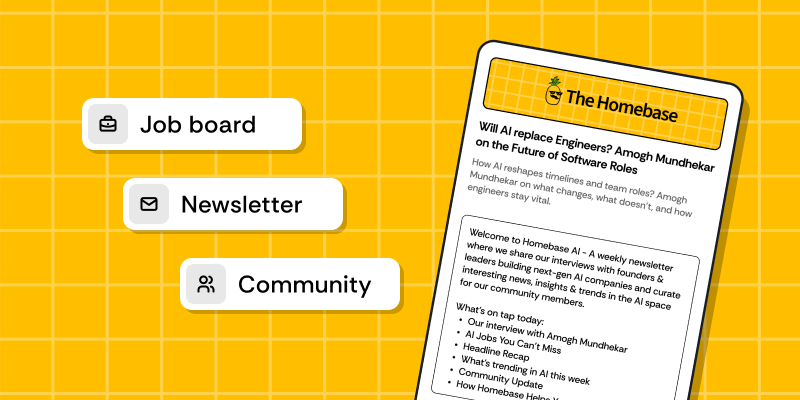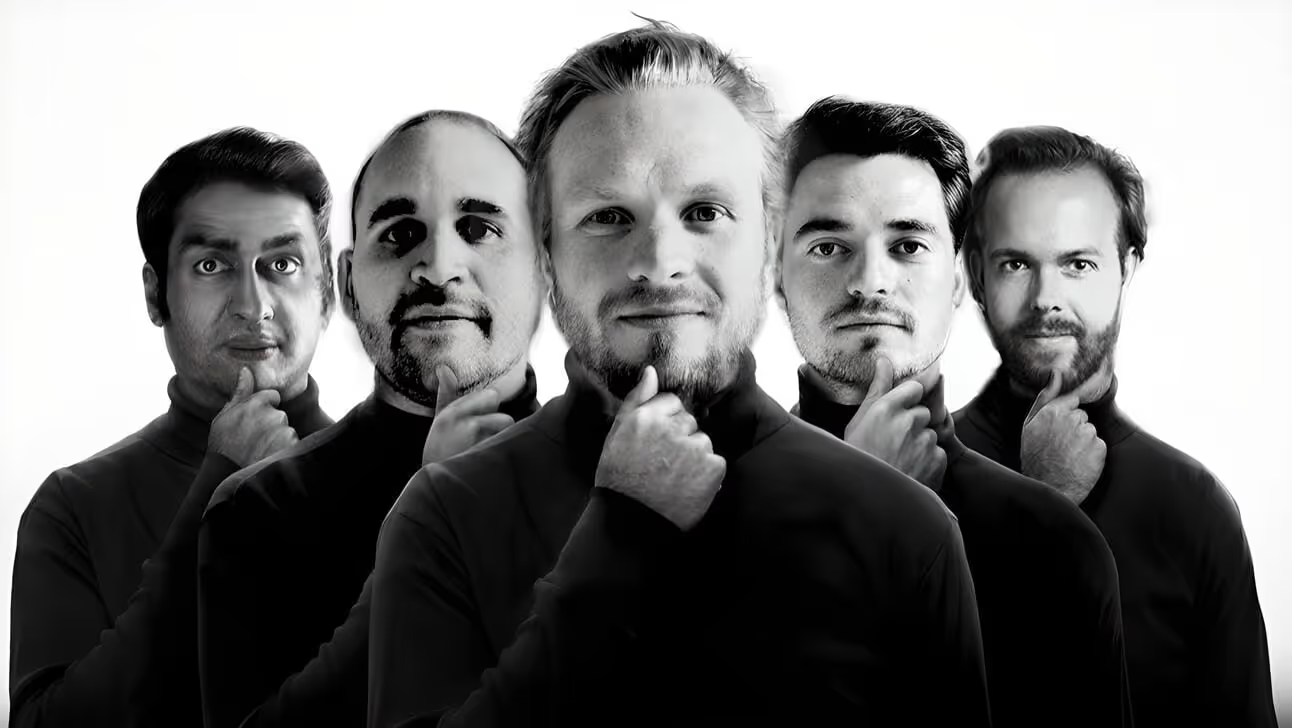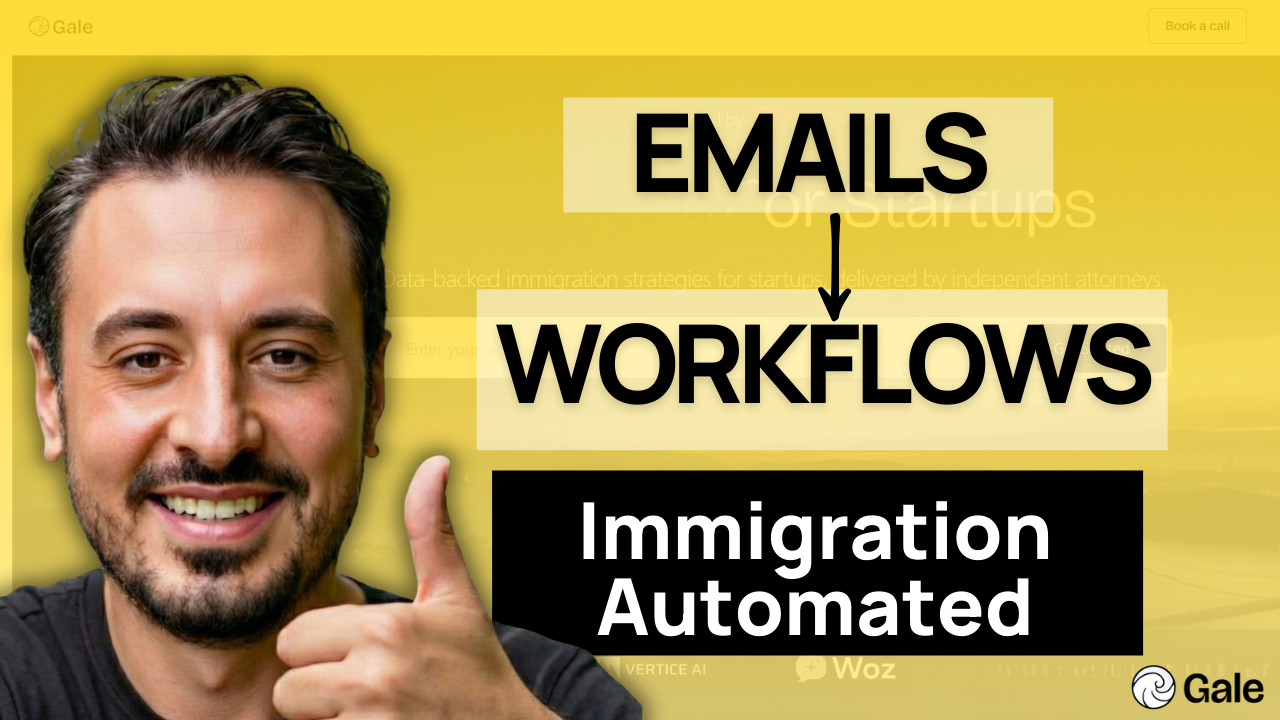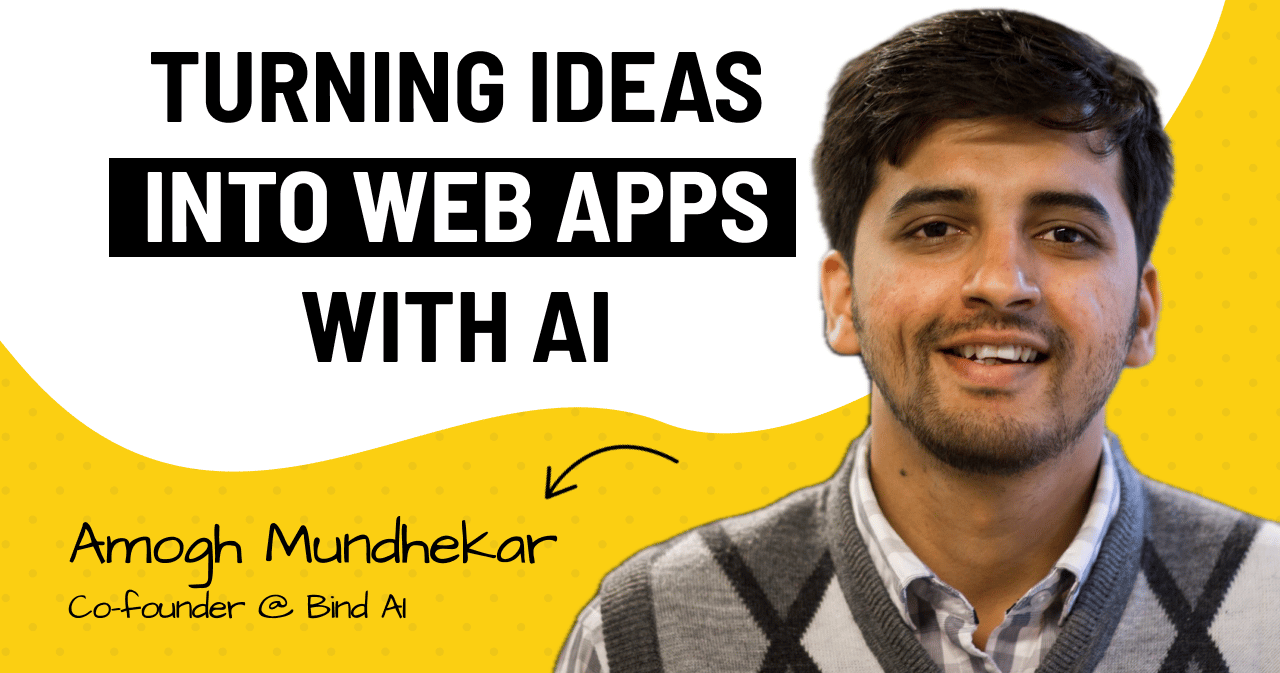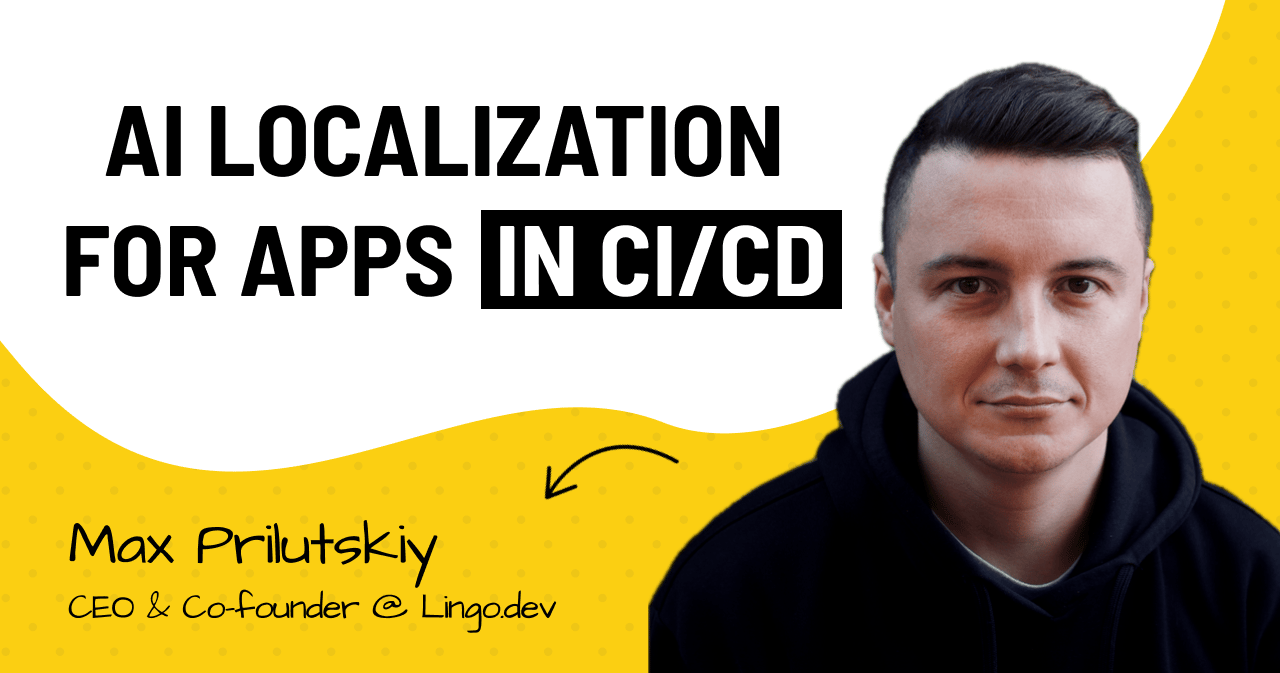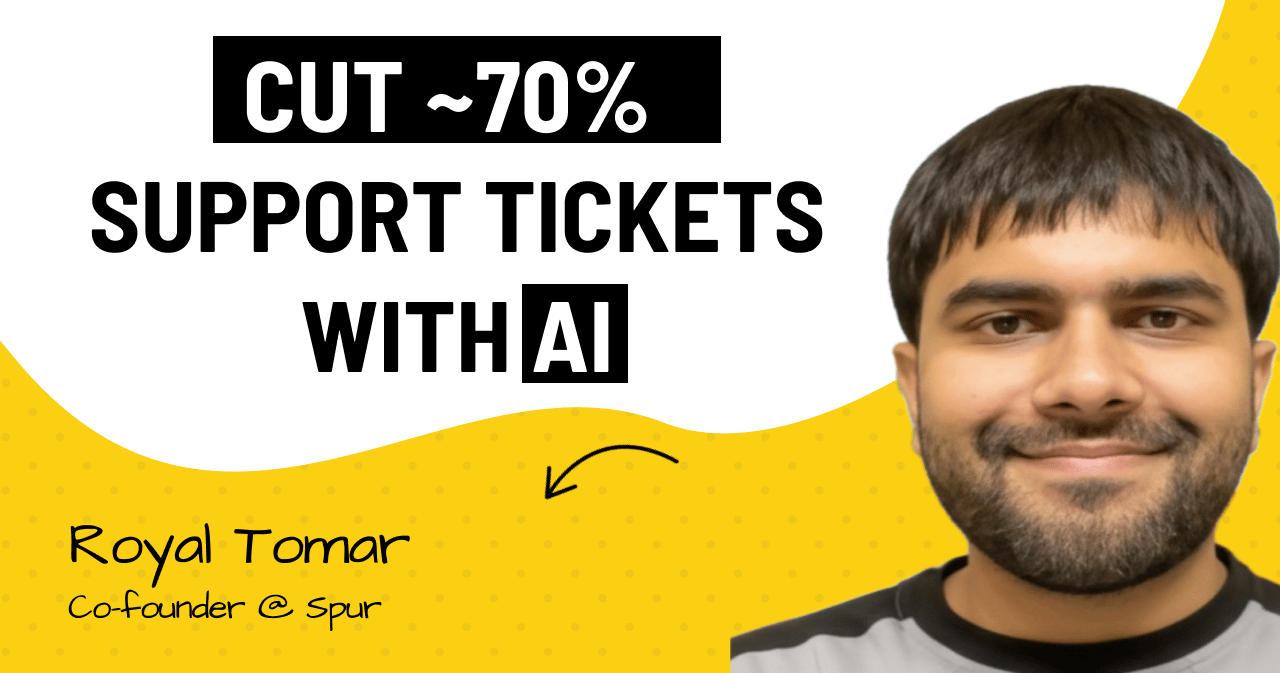Serial entrepreneur Lennard Kooy reveals his strategy for empowering mid-sized companies with AI capabilities, shares insights on building AI features without specialists, and explains why many businesses are still AI-hesitant in 2024.
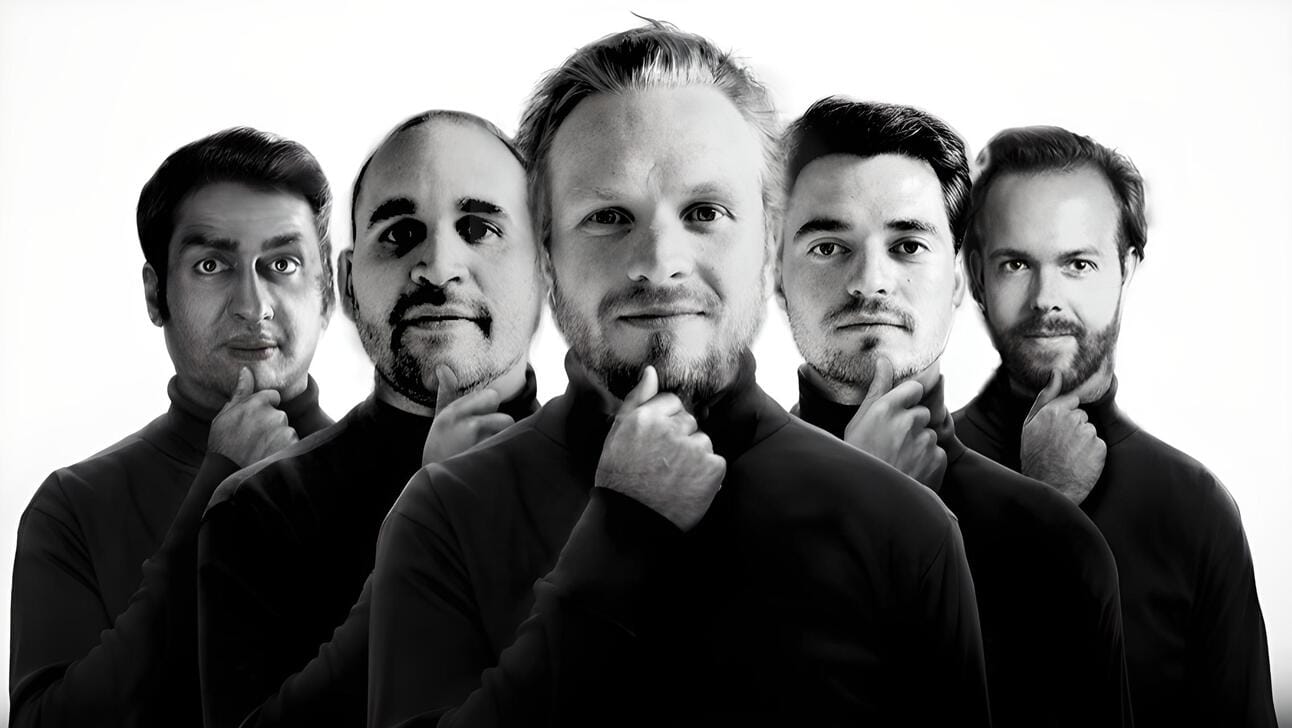
Company:
Lleverage
Founded:
2024
Headquarters:
Amsterdam, NL
Key Highlights:
If you only have a few minutes to spare, here's what investors, operators, and founders should know about Lennard Kooy's insights on AI and entrepreneurship:
- The second-time founder's gambit. After selling his 500-employee SaaS company, Storyteq, Kooy has returned to the startup arena with Lleverage, armed with €2M in funding and a July 2024 launch date. This move from established success to new ventures offers a glimpse into the cyclical nature of entrepreneurship.
- The AI accessibility conundrum. Kooy's observation that most tech companies struggle with meaningful AI implementation forms the foundation of Lleverage's mission: to make all developers into AI developers. This highlights a critical gap between AI's potential and its practical application in the industry.
- The power of the network. Lleverage's rapid development of an alpha version and acquisition of their first 10 clients through personal networks underscores the enduring value of relationships in the tech world, even as AI reshapes the landscape.
- The mid-market AI revolution. By focusing on companies with 30-300 employees, Lleverage is betting on the middle market as the battleground for AI adoption. This strategic "fine-tune" suggests where the real AI revolution might unfold.
- The dogfooding doctrine. Lleverage's approach to building platform features using their own AI technology isn't just a development strategy—it's a philosophy that could redefine how AI companies prove their worth to potential clients.
- The no-code prophecy. Kooy's bold prediction that 90% of applications will be created through natural language and visual builders within five years hints at a seismic shift in how we interact with and create technology.
- The reality check. Despite leading an AI company, Kooy offers a sobering counterpoint to the AI frenzy: most companies aren't doing anything with AI and don't care about it as much as insiders might think. This perspective offers a valuable reality check for the industry.
1. Your Story: Tell us about your path to becoming a founder.
Before this, I founded/ran a mid-sized saas company called Storyteq for 7 years. I sold that to private equity about 2 years ago and stayed on as the CEO of Storyteq and 2 other marketing saas companies for 2 more years.
In the end, I had almost 500fte in my team, which was a very interesting, educational, and humbling experience. But I missed the excitement and energy that comes with the infancy stage of a startup and wanted to get back to that.
So here we are (again..)
2. The Elevator Pitch: Give us your startup's pitch in 2-3 punchy sentences.
In my previous company, I noticed that most tech companies struggle with building meaningful features/applications with AI. With Lleverage we're making all developers AI developers, and enable all tech companies to Lleverage AI.
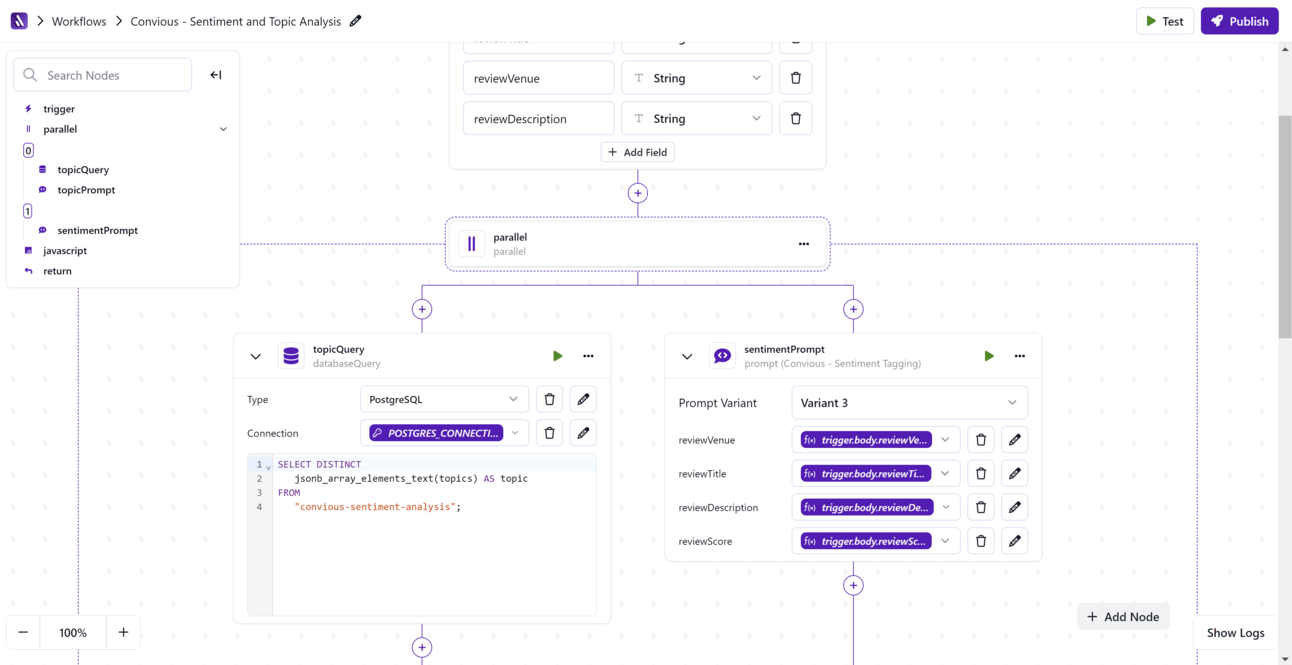
“Low code builder”
3. Our Idea in the Early Days: What was the 'Aha' moment that led to your startup?
Most of it is already mentioned. It made it a lot easier that I left together with my CTO and we had a good network of talented engineers that joined us. So we were able to get an alpha version up and running quite quickly. We could also leverage our network to test out the proposition, and later the alpha, with friendly CTO/CPOs and product/dev folk to get initial feedback and finetune the proposition.
In all honesty, we're still doing that. And will stay at it for a while. It takes time and insight to truly achieve product-market fit, and I believe you have to stay agile in the process. You have a direction, but you have to allow (the right) customer/user to change the direction if necessary.
4. Market Insight and Early Customers: How did you identify market gaps and acquire your first 10/100/1000 users/customers?
The first 10 design partners/clients we have come from our network. Friendly companies, companies that I advised in the past. Fellow entrepreneurs, my old company.
The first 10 are network
The first 100 are the hustle
The first 1000 are product value
5. Pivots: Were there any major pivots that you had to make in the early days?
We're still in the early days...The only 'fine-tune' we already made is to focus more on 30-300fte companies than really small or really big.
6. Growth: What strategies really moved the needle for your business when it comes to growth?
What worked well with my last company was a combination and having all elements 'work with each other'. So an outbound motion that was driven by initial interest, that in turn was driven by content strategies, paid channels, referral schemes, etc. Rather than targeting completely cold companies, our outbound/sales team only focussed on prospects that already had some touch-points with our proposition/brand.
Lastly: knowing who your customer isn't, is perhaps even more important than knowing who is.
7. Biggest challenge/s: Every startup faces hurdles. What were your biggest challenges, financial or otherwise, and how did you tackle them?
I think it's very easy to become stuck in your own little startup world/paradigm. E.g. in our case, it's easy to think everyone is doing everything with AI and competitors are the actual threat. They aren't.
The world doesn't care as much about your topic as you. E.g. in our case, most companies aren't doing anything with AI. They don't know any of the competitors. Simply because they don't care. They got their own shit to deal with. You have to step back once in a while and realize that. Put things into perspective, and go again. We sometimes fail at that.
8. Building the Brand: What's the story behind your company name & brand? Any unique marketing approaches that worked wonders?
The name is a playful version of what we aim to achieve: allow tech companies to leverage AI. The double L comes from a play on LLM's. Like llama. We haven't done much marketing yet. So definitely no wonder.
9. AI in Action: How are you leveraging AI in your business?
Sort of self-explanatory... What I think is really cool is that we build features for our platform on our own platform. We offer a lot of AI helpers (prompt creation, model selection, data generation, feature generation, etc) that all run as a workflow/pipeline on our own platform. Eat your own dog food.
10. Game-Changing Tools: What are the top 3 AI products or tools that have transformed how you run your business?
We run all the foundational models for a variety of jobs. I think anthropics is often underrated, especially for developers. Github co-pilot is a very well-done implementation of AI in my opinion. Will change the way people code.
11. Future Vision: What's your 10-year vision for your company? What milestones are you aiming for in the next 3/5/10 years?
We believe that in 5 years, 90% of the applications (that are currently written in code) will be created through natural language and visual builders. AI will do the heavy lifting in the background.
We want to become the go-to tool for product & dev teams when it comes to building with AI through those constructs (visual + natural language).
We got our last start-up to $35m ARR. The goal is $100m this time.
12. Team Building: Are you hiring? What roles are you looking to fill?
Yes. Fullstack dev, ML dev, Product Owner, Growth Marketer, Growth Intern
Qualities: Problem-solving skills. Cultural fit. Energy. Drive.
13. Words of Wisdom: Any insights or advice you'd like to share with fellow entrepreneurs?
Never lose faith. But if you do, quit.
14. Connect with Us: Where can our community learn more about your work?
- LinkedIn:
- Personal Profile: Lennard Kooy
- Company Profile: Lleverage
- Website:
- Lleverage AI Website: Lleverage AI
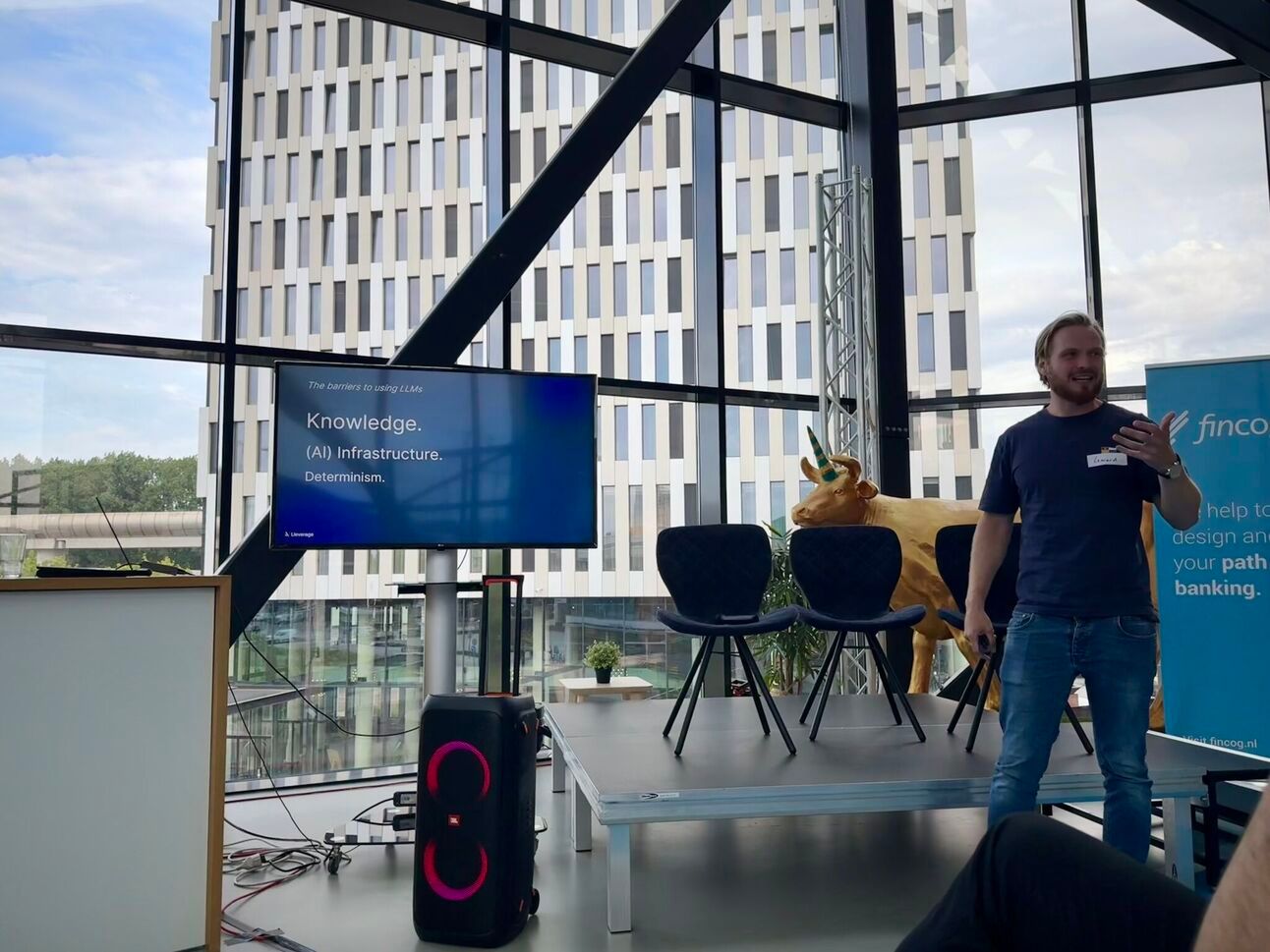
15. AI's Future and AGI: How will AI transform society in the next decade? Do you think we'll achieve AGI, and why or why not?
I have little doubt that we'll develop foundational models and agents that will be more capable than humans at most tasks.
Another question entirely is how it will behave. in the history of humanity, we've always managed to have our inventions work for us, rather than against us.
I believe we will be able to with AI. Although this will come with its challenges.
16. AI vs. Human Intelligence: In your view, what are the fundamental limits of AI compared to human intelligence?
AI is trained on data. data (even when generated through ai..) is foundational made by humans. this will impose limits on what we can achieve with AI.
Interview with
Lennard Kooy
Founder @ Lleverage
